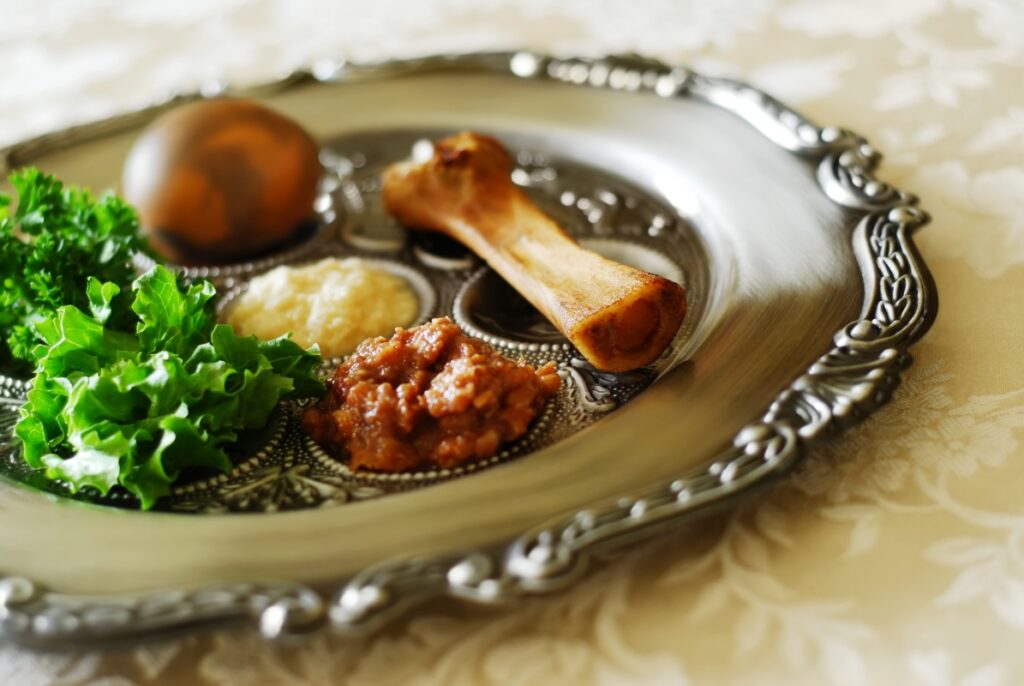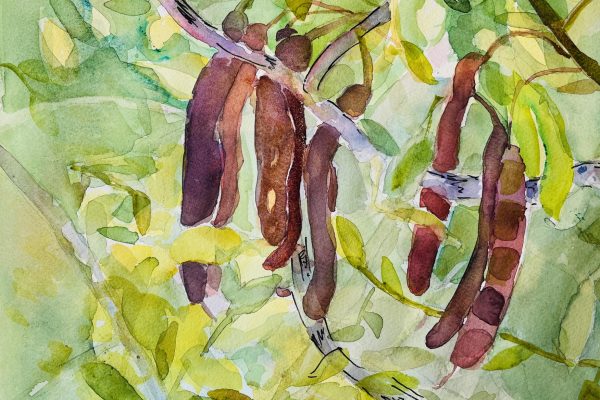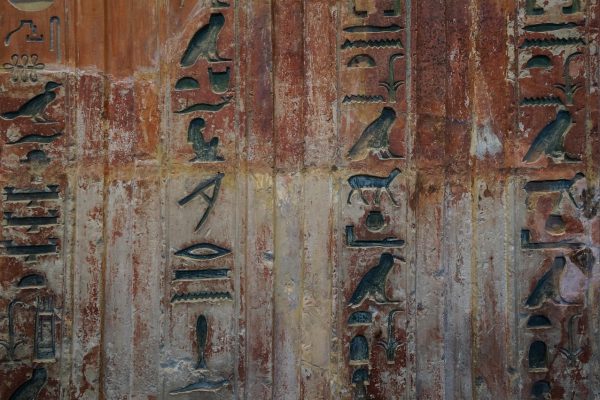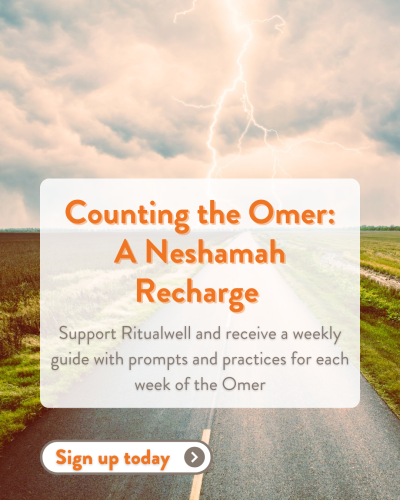Humility
In honor of matzah
May I be as humble as the unleavened bread
cooling on the windowsill, simple and content.
May today be a day where I do not swell
in anger or crumble in regret.
May I be reminded that all of us can be slaves
in one way or another, if not to a Pharoah,
then to the affliction of “can’t” and “should.”
May I learn to bow my head to the parsley struggling
in the garden as it recovers from the pound
of last night’s storm.
Not because it is a god, but because
it is closer to God and what it means
to truly pray.
Mercy
In honor of zeroa
I want to stretch my arm out like
the pascal lamb to protect every child
in the night, whether they have blood
on their doorposts or peeling red paint.
There are times I have nothing
to sacrifice to God, not even an offering
from my son’s untouched soup. I save this
for the children I do not know.
May my arm extend over their crouching
bodies and repeat the word, Love, love, love,
even if the sky goes dark and sound of thunder
seems like it will never end.
———-
Rebirth
In honor of beitzah
I simmered seven pastured eggs in a pot
of onion skins, garlic, peppercorns and
coffee grounds until the water resembled sludge.
I scooped each one out with a slotted spoon
and pounded them tenderly, the brown shells
cracking like my own skin has cracked over the years.
How I once thought I was barren.
How I once thought I could not leave.
How I once thought spring would not come.
I placed the eggs back in the pot so that the dark water
would color the hard-boiled albumen with brown lines
that could be considered beautiful.
May we see that sometimes rebirth takes place
in the midst of chaos.
May we learn to mourn even the loss of slavery
and anything that we used to consider home.
May we find new ways,
even today, to be free.
Bitterness
In honor of maror
I eat a razor thin slice of
horseradish to release
the held in tears hiding
in the parts of my body
still enslaved—
my tight hips,
my hard heart,
my sore throat,
my scared center,
my clenched thighs.
In so many ways,
I have awoken today
as a free woman
whose only bitterness
is in the shame of having ever
let myself be beaten by anyone
including myself.
Bitter, the flavor of fire.
Bitter, the guide to my heart.
Bitter, my ancestor’s tears.
Bitter, like the weeds covering
the garden saying, Sometimes balance comes
by being with what is –
and then letting it go.
Sweet Mud
In honor of charoset
When you spend years mixing
clay and straw, it is hard
to forget how it felt on your feet,
the daily drudgery of being enslaved
like a painful callus that becomes part
of your heels.
Even when you scrape it off, it returns
and feels familiar like a whip, like
the scarred belief that you are not worthy
of being free.
Even when the sea parts before you
saying, Go, go, you will have to walk
through the mud of your enslaved mind.
You will have to curse, and cry, and feel
all of it coming down on you like the waters
crying for all of God’s children playing
some awful game.
To consume what resembles clay
is to embody the bitterness of slavery
with the sweetness of redemption,
to let our feet be washed clean
knowing miracles can happen at any time.
Spring Weeds
In honor of karpas
The garden is covered by weeds
that could be eaten— dandelion, bittercress,
chickweed and a surprise parsley leaf whose
dormant seed woke up for the laughter of spring.
I would like to sit and speak with them all night
of tenacity and hope and learn to show up
even when it seems that I am not welcome.
And if it rains, may the water be full of salt
to prove that the sky also cries when it is enslaved.
And if I clip the parsley leaf from the hodgepodge
of compost and pill bug dirt, may I dip it
in a bowl full of water and vinegar and salt
and say somehow slavery
always ends.
Corie Feiner is the Poet Laureate Emeritus of Bucks County, PA and an award-winning author, performance poet and slam champion called “wonderful’ by The New York Times and “absorbing” by Backstage Magazine. She obtained her MFA studying with some of the greats at NYU and her latest project, A Poem for Every Pose, combines her love of yoga with her craft. You can learn more about her inspiring workshops and performances by subscribing to her newsletter at: https://coriefeiner.substack.com.













